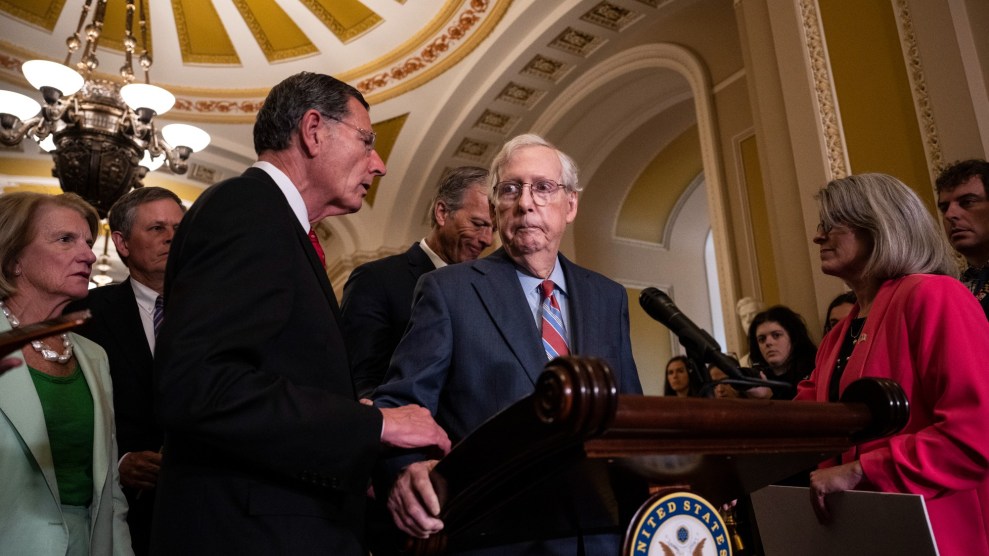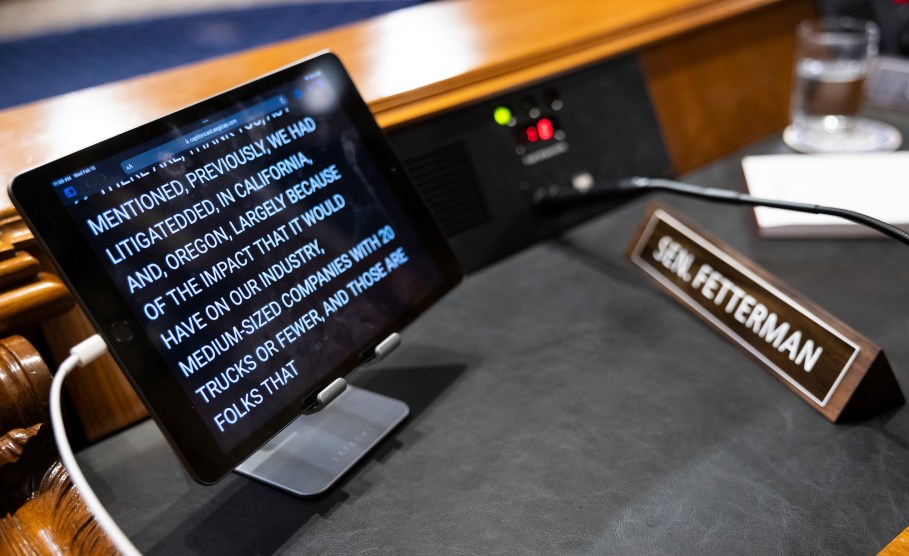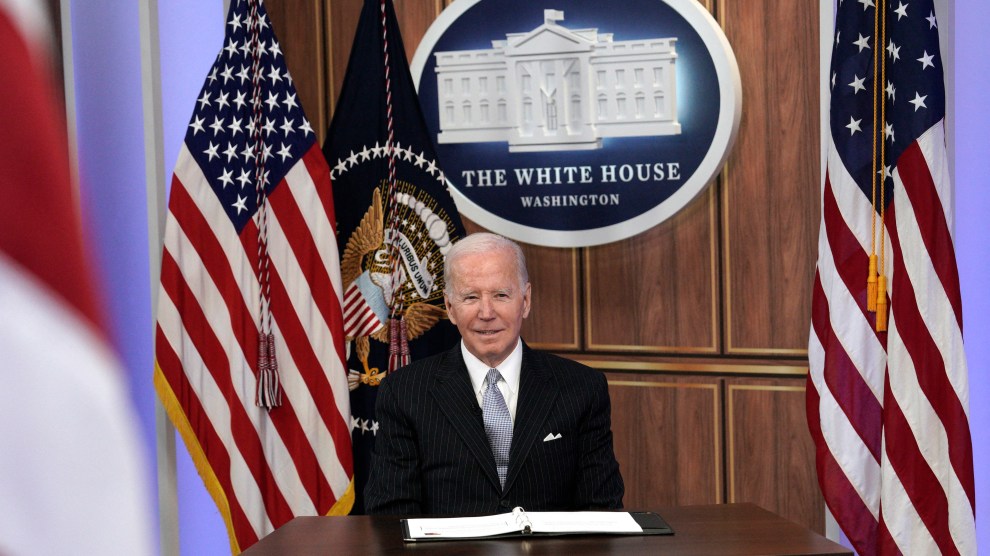
Drew Angerer/ Getty
It happened again. For the second time in about a month, Mitch McConnell suddenly froze in public on Wednesday, appearing to stare blankly and motionless for 30 seconds during a news conference. The 81-year-old senate minority leader, who suffered a concussion after a fall last year, had been attempting to answer a question from a reporter about his reelection plans.
McConnell’s spokesman told CNN that the Kentucky Republican had been feeling “momentarily lightheaded and paused during the press conference.” They added that McConnell “will be consulting a physician” before his next event.
McConnell is just one of several high-profile aging lawmakers who have made a new round of headlines this week. NPR on Thursday reported that President Biden, the country’s first octogenarian-in-chief, is regularly taking the shorter staircase of Air Force One in order not to repeat stumbles he’s made while climbing the 18-foot staircase at the front of the plane. And the unflattering stories continue for Dianne Feinstein, now the oldest serving member of the Senate, with Politico reporting more on the intense legal disputes between Feinstein’s daughter and her stepsisters over Feinstein’s estate. Since returning to the Senate after a nearly three-month-long medical leave in May, during which several of Biden’s judicial nominations were stalled because of Feinstein’s absence, Feinstein has appeared confused on numerous occasions, including last month’s vote on a defense appropriations bill. “Just say aye,” committee chair Patty Murray was seen telling Feinstein after she launched into a speech instead of saying “aye” or “nay.”
These stories renew a now familiar question: How old is too old for someone to stay in office? The issue is especially confounding considering Feinstein’s saga reflects a wider, deeply American crisis. As my colleague Stephanie Mencimer wrote:
The Feinstein saga is a very public example of innumerable private crises currently taking place in millions of American households. With their pathological obsession with personal freedom, Americans are both collectively and individually failing to address the growing problem of impaired elderly people. Consider how hard it is to take away someone’s driver’s license or move a senior who’s become a hoarder into a safer living situation. It’s only going to get worse. There are millions of baby boomers who are about to join Feinstein in the ranks of dementia patients.
These very public episodes from McConnell, Feinstein, and Biden, all of which have acutely underscored just how old our government is, have played a key role in the growing push for term limits and even mental competency tests. But the problems of gerontocracy extend beyond physical and mental capacity. As many have argued, lawmakers who have stuck around for decades threaten to keep in place outdated ideologies out of touch with the wider electorate.
The issue isn’t just term limits or people refusing to vacate office when they should—
It is specifically these people who’ve been in politics 50+ years,
still trying to dictate the next 50
while the world burns from the policies of their tenures.
— Bree Newsome Bass (@BreeNewsome) August 30, 2023

















